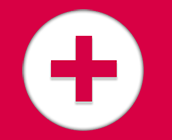Bachelor of Science (BSN) Nursing Program
Orlando (Altamonte Springs), Florida Location Only
Program Overview

The Bachelor of Science in Nursing degree program (BSN) offers 3 tracks: Traditional (36 months), Bridge to BSN (32 months, for LPN, Paramedic or Respiratory Therapists) and Accelerated (16 months, required BS or Masters Degree). The BSN program is designed to prepare students for a rewarding career as a nurse. The BSN program will immerse students in a didactic learning experience through a foundational education in liberal arts, concept-based learning within nursing courses, and enhanced skills training using clinical partner experiences and on-campus simulation labs designed to elevate the nursing students’ critical judgement. Cambridge College BSN curriculum emphasizes a quality education centered around serving patients and the community. At the completion of the program, graduates should have the ability to make successful application for state licensure. Upon passing the required NCLEX Examination, graduates can seek entry-level Registered Nurse employment in patient care and leadership roles.
What Can I Do With a Bachelor of Science in Nursing Degree?
Having a BSN degree not only allows you to works as an entry-level nurse, but allows to work in leadership positions such as charge nurse, supervisor and more. RNs with a Bachelor’s degree often find positions in specialty care such as in the ICU, Emergency Room, Labor & Delivery and Pediatrics.
Having a Bachelor’s degree also allows nurses to continue their education and receive a Master of Science in Nursing or MSN. With this degree, nurses can pursue careers such as nurse practitioner, advanced practice nurse and more.
Industry Current Simulation Training at Our Campuses
Cambridge College of Healthcare & Technology is excited to offer a cutting-edge nursing simulation lab for our Bachelor of Science in Nursing (BSN) and Associate of Science in Nursing (ASN) programs. Registered nurses are at the forefront of caregiving in almost every clinical setting across healthcare. As we face the challenges of meeting the demand for nurses and the growing complexities of the clinical skills necessary to perform their role, nurses must be trained to adapt to the evolving healthcare environment. For this reason, nursing students need to engage in an education that provides a wide range of hands-on learning activities to achieve competency.
Learn More About Our Simulation Training
Nursing Curriculum
Cambridge College of Healthcare & Technology’s Bachelor of Science in Nursing (BSN) program offers 3 tracks:
- Traditional – Candidates with limited nursing knowledge and do not hold a bachelor’s degree or higher
- Bridge – Candidates who are licensed as LPNs, Paramedics or Respiratory Therapists.
- Accelerated – Candidates who hold a BS or Masters Degree in any discipline
Below, please see program curriculum for each track:
General Education Courses
| ENC 1101 | English Composition I |
| ENC 110 | English Composition II |
| COM 301 | Microcomputer Application |
| NUT 180 | Nutrition |
| BSC 1085 | Anatomy and Physiology I |
| BSC 1085L | Anatomy and Physiology I Lab |
| BSC 1086 | Anatomy and Physiology II |
| BSC 1086L | Anatomy and Physiology II Lab |
| MIC 150 | Microbiology |
| MIC 150L | Microbiology Lab |
| ENC 1103 | Information Literacy |
| MAC 1105 | College Algebra |
| MAC 310 | Statistics |
| CHEM 1101 | General Chemistry |
| CHEM 1101L | General Chemistry Lab |
| SPC 1016 | Fundamentals of Speech |
| MEA 1239 | Medical Terminology |
| CS 1001 | Professional Development |
| PSY 1012 | Introduction to Psychology |
| HUM 101 | Introduction to Humanities |
| PHI 301 | Critical Thinking |
* General Education courses apply to all tracks
Traditional
| NURSG 1101 | Health Assessment |
| NURSG 1102 | Fundamentals |
| NURSG 1103 | Medical/Surgical I |
| NURSG 1201 | Obstetrics/Leadership |
| NURSG 1202 | Medical/Surgical II |
| NURSG 1203 | Pediatrics/Emergency Care |
| NURSG 1301 | Nursing Pathophysiology |
| NURSG 1302 | Advanced Leadership |
| NURSG 1303 | Community Health |
| NURSG 1304 | Global Health |
| NURSG 1401 | Nursing Informatics |
| NURSG 1402 | Research/Evidence Based Practice |
| NURSG 1403 | Clinical Practicum |
| NURSG 1404 | Integration of Nursing Concepts |
Bridge
| NURSG 1104 | Transition to RN Practice* |
| NURSG 1201 | Obstetrics/Leadership |
| NURSG 1202 | Medical/Surgical II |
| NURSG 1203 | Pediatrics/Emergency Care |
| NURSG 1301 | Nursing Pathophysiology |
| NURSG 1302 | Advanced Leadership |
| NURSG 1303 | Community Health |
| NURSG 1304 | Global Health |
| NURSG 1401 | Nursing Informatics |
| NURSG 1402 | Research/Evidence Based Practice |
| NURSG 1403 | Clinical Practicum |
| NURSG 1404 | Integration of Nursing Concepts |
Accelerated
| NURSG 1101 | Health Assessment |
| NURSG 1102 | Fundamentals |
| NURSG 1103 | Medical/Surgical I |
| NURSG 1201 | Obstetrics/Leadership |
| NURSG 1202 | Medical/Surgical II |
| NURSG 1203 | Pediatrics/Emergency Care |
| NURSG 1301 | Nursing Pathophysiology |
| NURSG 1302 | Advanced Leadership |
| NURSG 1303 | Community Health |
| NURSG 1304 | Global Health |
| NURSG 1401 | Nursing Informatics |
| NURSG 1402 | Research/Evidence Based Practice |
| NURSG 1403 | Clinical Practicum |
| NURSG 1404 | Integration of Nursing Concepts |
Careers
Create the Foundation for a Long, Rewarding Career
As a registered nurse, or RN, you will work directly with physicians, other nurses, and healthcare professionals to provide and coordinate care for patients dealing with various health conditions. RNs also play a key role in educating patients and families on medical treatment options while acting as emotional support during trying times.
According to the U.S. Department of Labor, the demand for registered nurses is secure and stable. Employment of registered nurses is projected to grow 6 percent from 2021 to 2031, about as fast as the average for all occupations.
Registered Nurse Work Environments
Nurses are needed wherever patients need care. This means there’s a variety of work environments to choose from, including:
- State, local and private hospitals
- Health clinics and physician’s offices
- Outpatient clinics
- Schools
- Home healthcare
- Hospice
- Correctional facilities
- Ambulatory facilities
- Nursing homes and long-term care facilities
- Birthing centers
- Specialty Units – Labor & Delivery, ICU, ER, etc.
- Charge Nurse
- Supervisor
- Unit Manager
What Is the Job Outlook for Nurses?
According to the Bureau of Labor Statistics, employment of registered nurses is projected to grow 6% between 2021 and 2031, with 195,400 job openings on average each year over the decade.
Registered Nurse Salary
The Bureau of Labor Statistics states that the average annual salary for a registered nurse is $82,750. Of course, this number could be higher or lower depending on your local job market and employer.
Frequently Asked Questions
What Does a Registered Nurse Do?
Registered nurses are licensed medical professionals who coordinate and provide patient care. Some of their duties include:
- Observing and communicating with patients
- Administering medications and treatments
- Preparing patients for exams
- Monitoring patient conditions
- Providing healthcare information and education
- A registered nurse’s duties may vary depending on the work environment.
How Do I Become a Registered Nurse?
The first step is to get your degree at an accredited institution. From there, you’ll need to pass a licensure exam in your state and receive your license. Once licensed, you’ll be ready to enter the field as an entry-level nurse.
Is Nursing a Good Career for Me?
Nursing is an excellent career choice for students who want to start their medical careers. Nursing is a rewarding career that enables you to make a difference in the lives of so many patients. Plus, there are plenty of opportunities for advancement as you gain experience.
Accreditation
The Bachelor of Science in Nursing Degree Program is approved by the Florida Board of Nursing.
Cambridge College of Healthcare & Technology is institutionally accredited by Accrediting Bureau of Health Education Schools (ABHES) and licensed by the Commission for Independent Education (license #2453).



